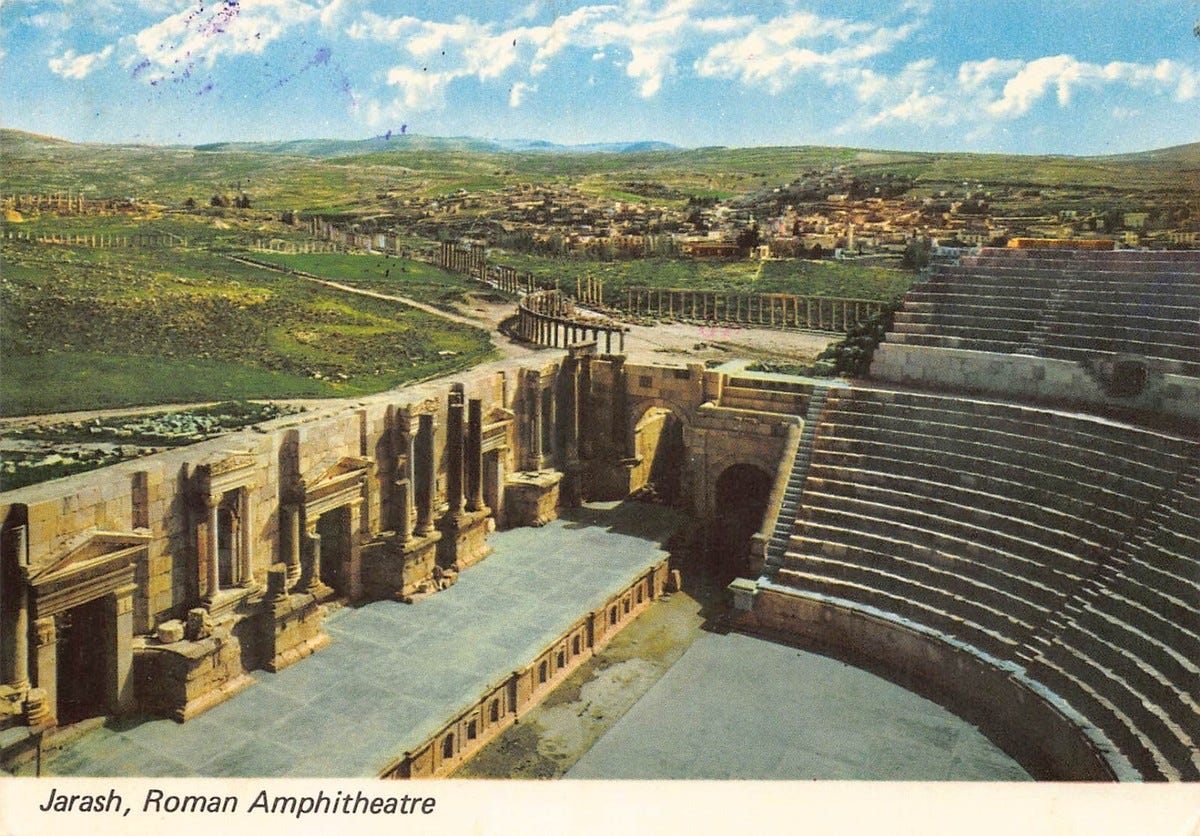The Recolonization of Palestine
In the valleys of northern Jordan lies a city called Jerash. Today it is insignificant, a small town known mainly for its crumbling ruins. But once it was Gerasa, a thriving Greco-Roman metropolis, part of the Decapolis, a beacon of learning, trade, and culture. Its colonnaded streets were filled with philosophers, its markets hummed with merchants from across the Mediterranean, its amphitheaters echoed with debate and drama. It was civilization in full bloom.
Then came the Islamic conquest.
In 636 CE, after the Battle of Yarmouk, Gerasa fell to the advancing armies of the Rashidun Caliphate. My ancestors, the indigenous Aramaeans, Nabataeans, and Greco-Romans, were forced to choose: submit, pay the humiliating jizya tax as second-class dhimmis, or face the sword. Many converted under duress. Temples were repurposed into mosques, libraries destroyed, and the vibrant cultural identity of Gerasa was stamped out. What had been a jewel of the Greco-Roman world became a decaying outpost of the Caliphate.




